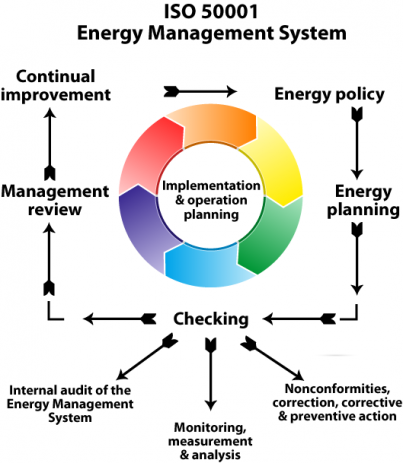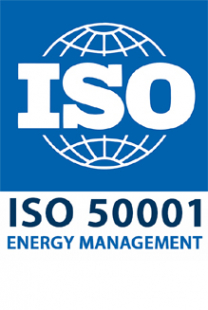ISO 50001 CONSULTANCY
ISO 50001 is the new International Standard on Energy Management, proposed by ISO. Energy efficiency and energy resource management is very relevant in today's context of global warming and climate change. Energy production is responsible for sixty percent of the world’s Green House Gas emissions. The proposed standard is in line with this requirement to help firms and organizations address and reference energy management issues on a global standard.
ISO 50001 is also proposed to be in line with ISO 9001 and ISO 14001 standards that address quality management and environmental management issues. Also, it will have the common elements of ISO's management standards like the continual improvement vide Plan-Do-Check-Act method adopted in the earlier ISO Management standards.
Implementation of ISO 9001 means what the organization does to fulfill the customer's quality requirements, and applicable regulatory requirements, while aiming to enhance customer satisfaction.
Implementation of ISO 14001 means what the organization does to minimize harmful effects on the environment caused by its activities, and to achieve continual improvement of its environmental performance. Similarly ISO 50001 implementation is expected to address what the organization does to effectively manage energy resources and performance that is relevant to global standards”.
The standard is expected to address issue like:
- Measuring, reporting, benchmarking energy use improvements.
- Assess energy improvement projects impact on GHG emissions.
- Create transparency in the management of energy resources.
- Evaluate the improvements in implementation of energy efficient technologies.
- Validate continuous improvement in energy management.
- Promoting a framework for efficient use of energy in the organization.
- Helping organizations make a better use of their energy assets.
- Helping in procurement practices for energy using equipment and systems.
- Emphasis management's commitment to energy use and efficiency.
The introduction of ISO 50001 has resulted in widespread uptake among all types of
energy users. The Plan-Do-Check-Act model has been proven successful for managing
quality and environmental issues. Each new management system standard is an
improvement over the prior ones, based on lessons learned from past experience.
Hence, ISO 50001 is strong in integrating performance measurement and data with the
management system framework. It not only leads to effective management of the process,
but also increases energy efficiency and more prudent energy use.

Objective
- To sensitize the industry in general and energy professionals in particular regarding the proposed Energy Management System –ISO5001
- To emphasize the need to integrate energy efficiency into existing industrial/commercial management system
- Establish the compatibility with other ISO modules
- To make aware regarding necessity of measurement and verification protocol
- To drive home the inter disciplinary coordination requirements

